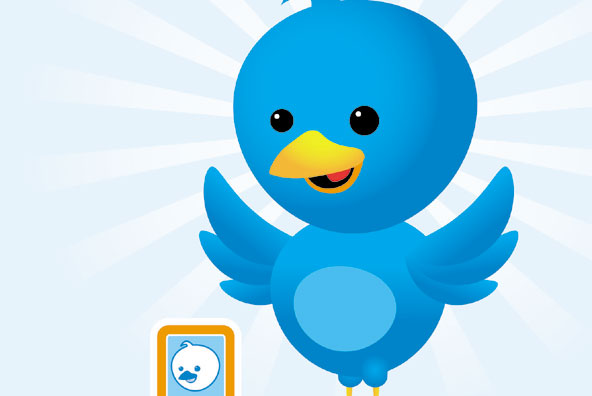Since its creation in 2006, Twitter, the social networking service, has taken the cyber world by storm. At first glance it might seem like a glorified Facebook status, but Twitter is in a league of its own, connecting people with fast-paced updates.
Since its creation in 2006, Twitter, the social networking service, has taken the cyber world by storm. At first glance it might seem like a glorified Facebook status, but Twitter is in a league of its own, connecting people with fast-paced updates.
It has become more than just an outlet for status updates – it is a place for closet comedians, activists, celebrities, businesses and everyday people to let others know about videos, opinions, interesting news, advertisements – and, yes, what they are eating for lunch.
The phenomenon includes a host of new vocabulary terms and concepts that every self-respecting Twitter-er should know. Here’s a crash course on everything Twitter, from basic terms to its impact on the news.
Basic Twitter terms
– Twitter: n.a free social networking service that connects users through fast-paced status updates.
– Twitter-er: n. one who uses Twitter.
– Tweet: n. short updates or messages, of 140 characters or less, which are posted on your profile and sent to your followers.
– Retweet (RT): n. unofficial Twitter feature that indicates a re-posting of a tweet from another user. Often uses the text “RT @username” (of the original source) before the post.
– Follower: n. one who receives another user’s updates on his or her Twitter profile.
– @: n. a public message from one user to another by using the “@username” prefix before a tweet.
-Direct message: n. a private message sent from one Twitter-er to another.
– #hashtags: n. a convention that adds context to tweets by putting “#” in front of a keyword to link other users using the same keywords. Example: #obama.
Tips to tweak your tweets
So you’ve finally been swept up by the techno-tide and gotten a Twitter account. But what to write? Who knew 140 characters could be so overwhelming?
Darren Rowse of the TwiTip blog (www.twitip.com) recommends a two-step tweeting process: Figure out what your followers want, and then give it to them. Some combination of cool links, conversation-starting quotes or questions, retweets and photos works well, Rowse writes.
Keep in mind that Twitter doesn’t directly offer photo hosting. You’ll need to use a third-party site like TwitPic (www.twitpic.com) to upload your photos. Other sites, like TwitVid (www.twitvid.io) can be used to post videos.
If you’re frustrated by the Spartan design of the Twitter Web site, try a Twitter client – Tweetdeck (tweetdeck.com/beta) and the Mac-only Tweetie (www.atebits.com) are the most popular, and both also are available as iPhone apps.
Even without an iPhone, you can update your Twitter on the go. After adding your phone number to your Twitter account, you can text updates to 40404 (check Twitter’s Web site for numbers to use outside the United States).
But no matter how you tweet, remember that people can see what you post, and Twitter might not be the best place to vent about your boss. Even if you make your Twitter private, your followers may not share your sense of discretion.
Celebrity
Twitter is teeming with celebrity accounts. The famous, who once shunned the media in their private lives, are posting everything on Twitter for all the cyber world to see, amassing followers in the millions. Who’s leading the celebrity pack?
TwitterCounter (www.twittercounter. com), a site that tracks the most popular Twitter users, lists Ashton Kutcher (username: aplusk) as the most popular Twitter-er with, as of our publication date, 2,691,112 followers.
Celebrity/User name
1. Ashton Kutcher/aplusk
2. Britney Spears/britneyspears
3. Oprah Winfrey/Oprah
4. Twitter/twitter
5. Barack Obama/BarackObama
6. John Mayer/johncmayer
7. Ryan Seacrest/RyanSeacrest
8. Shaquille O’Neal/THE_REAL_SHAQ
9. Kim Kardashian/KimKardashian
10. Demi Moore/mrskutcher
Breaking news: one tweet at a time
Although the microblogging site is perhaps best known for the short updates celebrities provide about their daily lives, Twitter is fast becoming a reporting service that cuts out the middle man – a direct line between sources and the public, such as events in the Middle East have proven.









